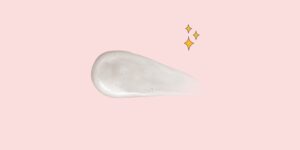Taking care of your skin is essential for maintaining its health and appearance. With numerous skincare products available, finding the right solution for your needs can be challenging. One powerful ingredient that has gained popularity in recent years is benzoyl peroxide. This article will explore the benefits, usage, and precautions associated with using benzoyl peroxide for skin care.
The Power of Benzoyl Peroxide
Benzoyl peroxide has long been hailed as one of the most effective ingredients for treating acne. Its powerful antibacterial properties make it a go-to solution for combating acne-causing bacteria, reducing inflammation, and preventing breakouts. Whether dealing with acne scars, occasional blemishes, or persistent acne, incorporating benzoyl peroxide into your skincare routine can make a noticeable difference.
Understanding Skin Care with Benzoyl Peroxide
What is Benzoyl Peroxide?
Benzoyl peroxide is an organic compound that is widely used in skincare products for its acne-fighting properties. It penetrates the pores and kills the bacteria responsible for causing acne. Additionally, it helps to unclog pores, remove excess oil, and reduce inflammation, resulting in clearer and healthier-looking skin.
How Does Benzoyl Peroxide Work?
When applied topically, benzoyl peroxide releases oxygen into the pores, creating an unfavorable environment for acne-causing bacteria.
“Benzoyl peroxide is directly toxic to Propionibacterium acnes bacteria,” says Dr. Chen. “So, there is no concern about developing bacterial resistance to this medication.”
This helps to eliminate existing pimples and prevent new ones from forming. It also helps to reduce oil production, keeping the skin balanced and less prone to breakouts.
Is Benzoyl Peroxide Suitable for All Skin Types?
Benzoyl peroxide is generally safe for most skin types, but it can dry and potentially irritate individuals with sensitive or dry skin. It is important to start with a lower concentration of benzoyl peroxide, and gradually increase it if needed. If you have sensitive skin, it’s best to consult with a dermatologist before incorporating benzoyl peroxide into your skincare routine.
The Benefits of Using Benzoyl Peroxide in Skin Care

Clearing Acne Breakouts
One of the primary benefits of using benzoyl peroxide is its ability to clear acne breakouts.
“Nearly all of my patients with acne-prone skin have a benzoyl-peroxide-containing ingredient in their acne skincare regimen,” says Dr. Chen. “This can be in the form of cleansers, or leave-on prescription cream.”
By targeting the root causes of acne, such as bacteria and excess oil, benzoyl peroxide effectively reduces the number and severity of pimples, helping you achieve a clearer complexion.
Preventing Future Breakouts
In addition to treating existing acne, benzoyl peroxide also treats acne as a preventative measure. Eliminating acne-causing bacteria and reducing oil production helps minimize the risk of future breakouts, keeping your skin clear and blemish-free.
Unclogging Pores
Clogged pores are a common issue for individuals with acne-prone skin. Benzoyl peroxide penetrates the pores and clears out the debris, preventing blockages that can lead to pimples and blackheads. Regular benzoyl peroxide can keep your pores clean and minimize their appearance.
Reducing Inflammation
Acne often causes redness and inflammation, making the skin appear irritated and uneven. Benzoyl peroxide possesses anti-inflammatory properties that help to calm the skin, reduce redness, prevent acne, and promote a more even complexion. By soothing inflamed skin, it contributes to a smoother and healthier appearance.
Boosting Confidence
Dealing with acne can take a toll on one’s self-esteem and confidence. Benzoyl peroxide can positively impact your overall well-being by effectively treating and preventing breakouts. Achieving clear and radiant skin can boost your confidence and improve your quality of life.
Potential Side Effects of Benzoyl Peroxide:
Drying Effect
Benzoyl peroxide has a drying effect on the skin, leading to extremely dry patches. This occurs because benzoyl peroxide reduces excess oil production and removes dead skin cells, which can strip away the natural oils that help keep the skin hydrated. Consequently, some individuals may experience flakiness, tightness, or even peeling of the skin when using benzoyl peroxide.
Irritation and Redness
In addition to dryness, benzoyl peroxide can also cause irritation and redness. The skin may become sensitive and inflamed, especially if higher concentrations of benzoyl peroxide are used or applied to broken or compromised skin. It is important to note that these side effects are usually temporary and tend to subside as the skin adjusts to the product. However, if severe irritation or allergic reactions occur, it is advisable to discontinue use and consult a dermatologist.
Proper Usage and Frequency
Following proper usage guidelines when incorporating benzoyl peroxide into your skincare routine is recommended to minimize the risk of dryness and irritation. Most skincare professionals suggest using benzoyl peroxide in one form, up to twice a day.
For example, if you use a benzoyl peroxide cleanser in the morning, you should simultaneously avoid using a benzoyl peroxide spot treatment. It is always wise to consult a dermatologist to determine the best way to integrate the best benzoyl peroxide products into your skincare routine.
“I caution patients to watch out for benzoyl peroxide bleaching towels and clothes,” says Dr. Chen. “Wear old t-shirts and use white towels after using benzoyl peroxide on the skin.”
Interactions with Other Products
Another consideration when using the best benzoyl peroxide product is its potential interaction with other skincare products. Users have reported that benzoyl peroxide may decrease the efficacy of vitamin C serums when used in the same routine. Therefore, if you use a vitamin C product in the morning, such as a hyaluronic acid serum with added vitamin C, it is recommended to use your benzoyl peroxide product at night to avoid any potential interactions. This precaution ensures that both ingredients can work optimally and provide the desired benefits for your skin.
How to Use Benzoyl Peroxide for your skin

Understanding the different ways to use this ingredient can help you effectively incorporate it into your skincare routine.
Face Wash
A recommended option for the face and body is a benzoyl peroxide and aloe vera body wash like Benzaderm Wash 10%. This product has undergone extensive testing and has proven effective for acne on various body areas, including the face, arms, back, and bottom.
Spot Treatment
Since benzoyl peroxide targets bacteria in clogged pores, it makes sense to apply a benzoyl peroxide spot treatment to existing pimples directly. AcneFree’s Terminator 10 Acne Spot Treatment, containing 10% micro-benzoyl peroxide, is an excellent choice. It combines the acne-fighting properties of benzoyl peroxide with calming ingredients like chamomile, ginger, and sea whip to reduce inflammation and soothe the skin.
Lotion
A mild benzoyl peroxide lotion is worth considering for preventing pimple formation. Bacteria on the skin’s surface also contribute to developing inflammatory acne, making benzoyl peroxide products popular. Applying the lotion after washing your face before bed is recommended, allowing it to work overnight. If you choose to use it during the day, apply a thin layer and remember to use sunscreen on top, as some chemicals can increase sensitivity to sunburn.
Toner
Benzoyl peroxide toners are available over the counter and in higher strength through prescription. Toner provides a topical acne treatment-only option; its liquid form offers more control over the application. This is particularly beneficial for individuals experiencing dryness when using benzoyl peroxide. To apply toner safely, dampen a cotton ball or square with a small toner, gently press it onto the affected area, and allow it to dry.
You can effectively combat acne and maintain clearer skin by understanding how to incorporate benzoyl peroxide into your skincare routine.
Fast Facts
| Definition | Benzoyl Peroxide is a topical medication commonly used to treat acne and skin blemishes. |
| Cosmetic Use | It is utilized in various skincare products like cleansers, spot treatments, and creams for acne-prone skin. |
| Impact on Skin Types | Suitable for oily and acne-prone skin. May cause dryness and irritation, making it less suitable for dry skin. |
| Benefits | Kills acne-causing bacteria, unclogs pores, reduces inflammation, and helps prevent new breakouts. |
| Drawbacks | Can cause redness, peeling, and dryness. May increase sensitivity to the sun. |
| Recommended Usage | Typically used once daily initially, then gradually increased to twice daily as tolerated by the skin. |
| Compatibility | Can be used with most skincare ingredients like salicylic acid, but avoid combining with other exfoliants to prevent irritation. |
| Precautions | Perform a patch test, use sunscreen, avoid contact with eyes, and start with lower strengths to minimize irritation. |
| Suitable For | Individuals with mild to moderate acne and oily skin. |
| Frequency | Generally used once to twice daily. |
| Works Well With | Non-comedogenic moisturizers, gentle cleansers, and sunscreen. |
| Don’t Use With | Be careful when you use benzoyl peroxide products. Avoid harsh physical scrubs to prevent over-exfoliation. |
FAQ’s
1. Can benzoyl peroxide make my skin dry?
Yes, benzoyl peroxide can cause dryness, especially if used in higher concentrations or applied excessively. Starting with a lower concentration and gradually increasing it as tolerated is essential. A moisturizer suitable for acne-prone skin can help maintain the skin’s moisture balance.
2. How long does it take to see results with benzoyl peroxide?
Results may vary depending on the individual and the severity of the acne. Some people notice improvements within a few days, while others may take several weeks to see noticeable changes. Consistency is key, so it is important to follow a regular skincare routine and give benzoyl peroxide enough time to work its magic.
3. Can I use benzoyl peroxide with other acne-fighting ingredients?
While benzoyl peroxide is effective, it can be combined with other acne-fighting ingredients for enhanced results. However, it’s important to introduce new products gradually to avoid potential irritation. It’s always a good idea to consult a dermatologist or skincare professional before combining multiple active ingredients.
4. Can benzoyl peroxide bleach clothing?
Yes, benzoyl peroxide can potentially bleach fabrics, including clothing and towels. It’s advisable to allow the product to dry completely before coming into contact with fabrics to minimize the risk of discoloration. It’s also a good practice to use white towels and pillowcases to avoid unwanted staining.
5. Should I apply benzoyl peroxide to my face or spot treat?
Whether to apply benzoyl peroxide to the entire face or spot treat depends on your skin’s needs and sensitivity. Applying benzoyl peroxide to the entire face can be beneficial if you have widespread acne or are prone to breakouts across your face. However, spot treatments can be more targeted if your breakouts are localized.
6. Can I use benzoyl peroxide during pregnancy?
If you are pregnant or breastfeeding, it’s always best to consult your healthcare provider before using new skincare products, including benzoyl peroxide. But benzoyl peroxide is generally considered safe for topical use.
Conclusion
Skincare with benzoyl peroxide can be a game-changer for those struggling with acne-prone skin. Its powerful acne-fighting properties and ability to unclog pores and reduce inflammation make it a reliable solution for achieving clear and radiant skin. Remember to start with a lower concentration, introduce it gradually, and listen to your skin’s needs. You can bid farewell to pesky breakouts with patience and consistency and say hello to a healthier, happier complexion.


